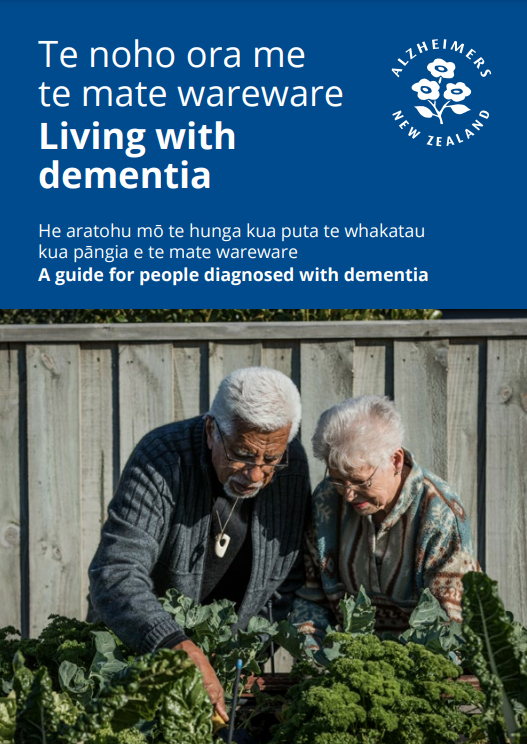Te noho takitahi – Living alone
If you live alone, you may be able to continue to do so for some time after getting your diagnosis.

Here are some ideas that might help you. They are also useful if you live with other people.
Ask for help
Most people value their independence, so asking and accepting help can sometimes be very difficult.
Whānau and friends are usually very happy to help if you let them know what you need. Their help is what will help you maintain your independence.
As well as whānau and friends, many community services can help you to stay at home while you want to. These services can help in a variety of ways, including preparing and delivering meals, cleaning and house maintenance, transport and getting you to social visits.
Stay safe
Your home is your haven and probably where you feel safest. But you should think about taking extra precautions now to reduce the risks of anything happening to you at home.
Gas and electricity
Think about getting automatic shutoff devices on your electrical and gas appliances. These will turn the power off automatically after a period of time if the appliances are accidentally left on. Look out for new appliances with cut-off switches.
Smoke detectors
Everyone should have smoke detectors installed throughout the house. Arrange for someone to check them regularly and install fresh batteries.
Emergencies
Keep a list of emergency numbers in your cell phone or written in large print by the phone. Include your address and a description of where you live. Consider getting a bracelet or necklace with all your details registered that’s linked to a 24-hour emergency assistance service.
Furniture
Arrange furniture simply and leave it in the same place. It can help to keep the house uncluttered. Get rid of loose rugs or mats and make sure all carpets are fixed down as these can causes trips and falls.
Reminders
Leave yourself written reminders where you will see them easily. Use your cell phone or use sticky post-it notes to leave reminders to yourself. You could also ask a friend or relative to remind you of meal times, appointments and when to take your medications.
Keys
Leave two or three sets of spare keys with whānau, friends or a trusted neighbour.
Night light
If leaving a light on at night disturbs your sleep, a sensor light inside that automatically turns on when you move around might be a better alternative.
Stay in touch
It’s important to maintain your social contacts. You may find it helps to talk to others who have been diagnosed with dementia. There are support groups for people with dementia, and for their families and the people who care for them.
Assistive technology
There is an increasing amount of assistive technology that can be used to help you remain at home for longer. This information sheet provides an overview of what is available. You should ask your local Alzheimers organisation for more information.
-

Booklet: Living with dementia
A guide for people diagnosed with dementia
This booklet is written for people who have been diagnosed with dementia to give you information and to help you continue to live well.
The booklet suggests ways to look after yourself including how to adjust to change and managing your day, as well as working, driving, keeping involved and active and planning for the future.

